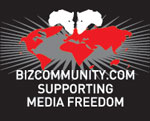
Related
Top stories





Marketing & MediaAds are coming to AI. Does that really have to be such a bad thing?
Ilayaraja Subramanian 16 hours

More news
















At the centre of controversy lies the refusal by the ANC to include a public interest clause that will protect citizens, including journalists, who disclose classified information exposing government misdeeds from prosecution and jail time.
The bill, deemed 'constitutional' by ANC MP Luwellyn Landers but described by critics as flawed and pretty bad, will sentence those who tamper with classified information to up to 25 years in jail.
"The bill is still pretty bad"
"Despite some amendments, the bill is still pretty bad. If you publish a state secret, you are a criminal and you could either pay a fine or spend up to 25 years in prison," Right2Know Campaign national coordinator Murray Hunter told Bizcommunity.com today, Monday, 5 September 2011.
"Yes, it is very much a blow to media freedom because the legislation will not only target the media but also their sources and other whistleblowers, and when you do that, it constitutes a threat to freedom of everyone," Hunter explained.
William Bird, head of Media Monitoring Africa (MMA), told Bizcommunity.com yesterday that, while it was important to consider that the bill is significantly better than it was, enacting its current version may well be unconstitutional.
"Shift away from openness, transparency and accountability"
"Is it potentially a significant blow? Yes, it is or at least it may well be if passed and if a journalist or whistleblower tries to expose something classified in the public interest," Bird said. "I think most importantly, though, the bill is a shift away from openness, transparency and accountability, particularly of our intelligence services."
SA is one of the countries whose media freedom and transparency levels have been declining consistently in the past five years or so - as per Reporters Sans Frontieres and Transparency International indices, respectively.
Weekend media reports said the adoption of the bill's final version means that the ruling ANC has prevailed. In the past, the ANC accused some sections of the media of constantly focusing on negativity and therefore resenting national success.
Threat to democracy
Some party hardliners also said the media were a threat to democracy, while others equated critical journalists to the enemies of the revolution, saying they deserved to go to jail. A couple of journalists have also reportedly received death threats from faceless people.
Now that it has been finalised, the bill will go to Parliament on Thursday 15 September to be voted into law.
But that might not happen - yet - as one political opposition party, the ACDP, said it intends to petition President Jacob Zuma to refer the bill to the Constitutional Court.
Asked about the Right2Know's next move, Hunter said: "We will continue to pile pressure as much as we can; that's all we can do right now because we don't expect much from the ANC since it has already made its intention clear."
However, he said his organisation will soon mount a political and legal challenge against the bill.

For more:
